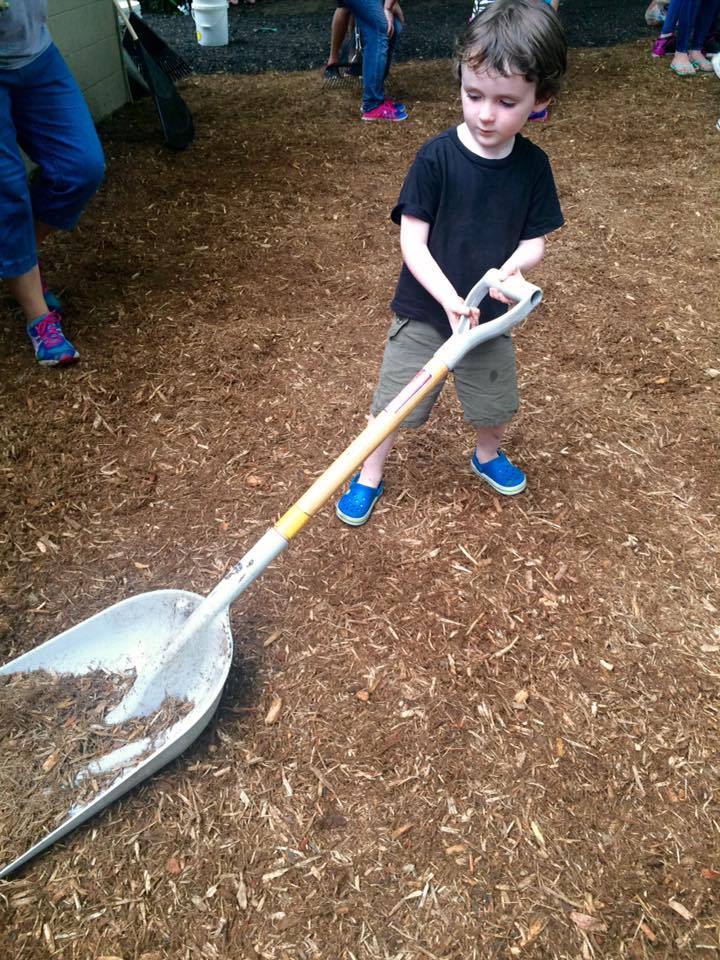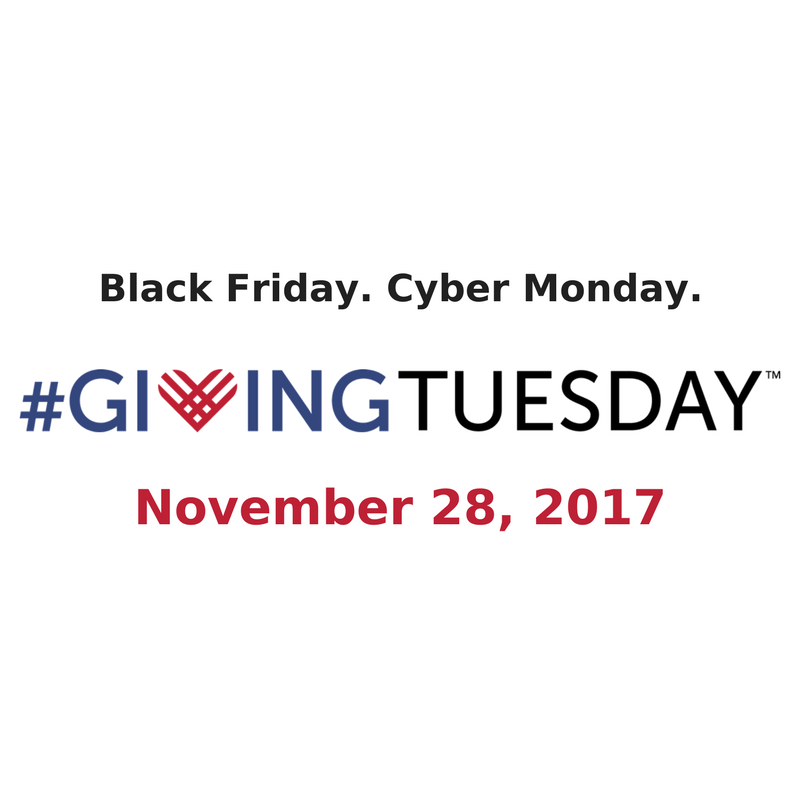 Voices for Earth Justice started interviewing me for the executive director position back in the summer. I started the job on September 11. Almost every day since I submitted my application letter, I've been contemplating the name of our organization: "Voices for Earth Justice." That's a big name. A REALLY big name! As big as Earth! As big as justice! The more I contemplate that big name, the smaller I feel: "Irwin, who are you to presume that you should be 'executive director' of 'Earth Justice?'" "Irwin, who are you to believe you can make any difference to Earth justice?" "Irwin, what do you even know about Earth justice?" Do you ever question yourself that way? Do you ever feel that same small feeling? Over the three months since I started my new role at Voices for Earth Justice, I've come to the conclusion that being/feeling "small" is not a bad thing. In fact, it may be the thing we need to take on something as big as Earth justice. Three things I've come to believe (see if you believe them, too):
As we go forward together, let's celebrate, embrace, and make the best use of our smallness. Let's believe in the power of the little things we choose to do each day and let's find practical ways to be a little better today than we were yesterday. Let's believe that even the people we don't like or don't understand have as much a role to play in the world we're growing as we do. Let's seek to listen big and talk small in order to make room for mutual respect and understanding. Let's delight and glory more in what we don't know than stagnate in what we do know. Being small and doing small are often the excuses we use to do nothing at all. In truth, being small and doing small are exactly what we need to be and do to start making a real difference. Let's embrace being small. It's a big deal!
0 Comments
You're one of about 2,400 people around the world who support Voices for Earth Justice through your interest, money, prayers, or time.
You are the "voice" in Voices for Earth Justice. It is easy to say "thank-you" to you for what you do for our organization. In 2017, we helped more than 1,000 people learn how to be more grateful and responsible for Earth. We continued to transform vacant buildings and land into a demonstration site for loving neighbors and Earth-friendly sustainable agriculture. Indeed, none of that would be possible with you. We are thankful to you for all of that. What nonprofit organizations like us often forget, however, is to say "thank-you" for what you do when you're not giving money or volunteering time to us. Knowing what we know about you, you are doing good things for the Earth every day and in more ways than we'll ever know. You're loving your neighbors in little ways that nobody will ever see. You're a voice for Earth justice even when you're not working with Voices for Earth Justice. Accomplishing the mission of Voices for Earth Justice is so much bigger than Voices for Earth Justice. In fact, the mission itself cannot and does not belong to us. It a mission as big as the Earth itself and as widespread as every inch of ground where something lives. The only chance we have of accomplishing that mission is not through the efforts of one little nonprofit organization in Detroit; it is through the little things you do each day as you learn to live your life better. You're doing that and for that, we thank you! And for all you do for us, we give thanks this Thanksgiving. Blessings and peace on you and all the people and places you hold dear. Onward and upward, BT Irwin, executive director Voices for Earth Justice Be honest: How much do you enjoy winning an argument?
At first pass, it would seem the answer to that question would be: “A lot!” Consider the question a little more. As I think about it, I cannot recall a single argument I ever enjoyed winning. In fact, every argument I can recall winning made me feel more like a loser. You see, in my teens, 20s, and 30s, I put a lot of energy and faith in winning arguments. I thought that if I could win arguments, I could win people to my cause or point of view. How I was mistaken! I had to learn the hard way: Win the argument, lose the person. Given the choice, which would you rather have? The solitary satisfaction of being right or the fellowship and warmth of a friend? What about this question: Can we really make the world better by winning arguments? Or does making the world better really depend on making friends? Especially when those friends are people who we used to consider opponents? Sure, it’s easier and more (perversely) satisfying to argue with an opponent. It’s easy to cast quick judgment on their moral fiber and motives. Finding good reasons to put another person down sure makes us feel high and mighty, doesn’t it? It also keeps us far apart. And it makes our sin of the same variety that we so quickly attribute to others. The hard truth: People who see things different are not bad people. They’re just people like you and me. They’re afraid of the unknown. They’re trying to make sense of life. They often feel inadequate. They get tired from the daily difficulty of life. As much as we want to make them out to be so different from ourselves, they’re not. If they’re not so different from us, then we have some basis for coming together with them. We have reasons to believe that we can agree on some things and cooperate to make a difference. But winning an argument does nothing to bridge our differences and bring us together. It only drives us farther apart. It burns up all of the oxygen that we need to have a relationship with each other. Voices for Earth Justice appealed to me because reconciliation is such a strong part of its culture and mission. Some environmental and social justice organizations seem to say: “You can be part of us if you agree with us 100 percent and look like us, too!” I don’t see how that is going to make the world better. At Voices for Earth Justice, we seem to understand that we can only achieve our mission by joining people who don’t seem to belong together. It seems that here, we say: “You can be part of us even if we disagree on a lot of things, even if you don’t look anything like us! We’re not here to argue with you; we’re here to build a relationship with you and see where that takes all of us together!” Yes, I’ve been an arguer. It was easier and more self-gratifying, but I ended up alone in my self-righteous solitude, cooking in my own resentful juices. In that state, how could I affect any meaningful change in the world? Debate has its place and and productive debate has rules that preserve admiration and respect between opponents. Let’s use debate sparingly. Instead, let’s make things like empathy, friendship, and patience our preferred methods for winning. Not arguments, but people. Onward and upward! BT Irwin, executive director Voices for Earth Justice bt@voices4earth.org Each year on the Tuesday after Thanksgiving, more and more people around the world join millions of their family, friends, and neighbors in a celebration of generosity.
Now in its fifth year, #GivingTuesday is likely to generate hundreds of millions of dollars in donations for causes and nonprofits in communities around the globe on Tuesday, November 28. We hope you plan to celebrate generosity on #GivingTuesday by making gifts of your own to the organizations you believe deserve your support. We hope that Voices for Earth Justice is one of those organizations. This year, the Bill and Melinda Gates Foundation is pledging to match #GivingTuesday donations dollar-for-dollar up to $1,000 per individual and $50,000 per nonprofit. That means if you give $100 to Voices for Earth Justice on #GivingTuesday, the Gates Foundation will also give $100. It's like giving $200, but only taking $100 out of your wallet. Imagine doubling the difference you make to programs like Hope House in Detroit! To receive the Gates Foundation match, you must make your donation using the "Donate" button on the Voices for Earth Justice Facebook page (Facebook.com/voices4earth). Facebook will waive all gift processing fees on #GivingTuesday, so more of your money goes to Voices for Earth Justice. Finally, the Gates Foundation set a limit of $2 million total for matching gifts on #GivingTuesday. That means when the $2 million is gone, no more matching funds will be left. The matching period begins at 8 a.m. EST on #GivingTuesday, November 28, so plan to make your donation early so you'll be sure to get the match. To help you remember to "double your donation" on #GivingTuesday, we set up a #GivingTuesday event. Follow this link, sign up for the event, and we'll send you a reminder the day before #GivingTuesday. Then all you have to do is make your donation at Facebook.com/voices4earth on Tuesday, November 28, and the Gates Foundation will match it. Please plan to be part of the global giving community on #GivingTuesday, November 28, and please double your donation by giving to Voices for Earth Justice at Facebook.com/voices4earth. Thank you!  You want to buy your family, friends, coworkers and neighbors great gifts, but you also want to make sure those gifts are eco-friendly or Fair Trade? Voices for Earth Justice is happy to help you "shop for earth justice" this giving season. You can check out over 70 eco-friendly and Fair Trade gift ideas in our gift guide on Amazon. Click here to have a look. Please be sure to shop at smile.amazon.com and choose Voices for Earth Justice as the cause you want to support. Shopping at smile.amazon.com is the same as shopping at amazon.com, except Amazon will donate half a percent of your total purchase to Voices for Earth Justice. Let us know what you think of our Eco-Friendly and Fair Trade Gift Guide. We're happy to add suggestions if you send them to us. Happy shopping! Happy giving! Happy stewardship! How are you at doing things you know are good for you?
Things like eating five fruits and vegetables a day, flossing, putting money into savings, and working out? Or how are you at not doing things that are not good for you? Things like eating too much junk food, hanging out on social media for hours at a time, procrastinating, and watching too much TV? Give yourself an honest assessment. How do you do? Being a human being is funny. We like to think that we’re rational creatures, but our behavior says otherwise. We know what is good for us, but we don’t do it--at least not consistently and often enough. We know what is bad for us, but we persist in doing it (all while we tell ourselves we’ll get around to stopping the bad behavior tomorrow). A group of luminary scientists recently gathered at the University of Pennsylvania to begin looking for a way to solve this problem. They ask the question: Why are human beings so bad at doing the things that are good for them? And why are we so good at doing the things that are bad for us? These scientists are looking at the obvious stuff: The things that, if we do them, will make us happier (getting enough sleep and spending time with family and friends), healthier (eating right and exercising), and wealthier (saving more and spending less). The length and quality of our lives depends on doing things like these--and we know it!--yet we don’t do them or we keep putting them off. If that’s how we are with the very simple life habits that most affect our personal happiness, health, and wealth, how will we be with something that seems more abstract and impersonal? Something like climate change? I recently read an article about how Americans overwhelmingly believe in climate change. It’s just that we Americans--human beings that we are--never get around to actually doing anything about it. Why should we expect ourselves to do anything? We can’t even order a salad, save a dollar, or stop looking cat videos on Facebook! The real challenge of a mission like ours at Voices for Earth Justice is not ecological; it’s human. We don’t have to get people to agree with climate change, environmental responsibility, or social justice in theory. Most of them already do. Most of them already believe that something needs to be done. How does believing or knowing something turn into changing personal behavior? That is the real challenge of our mission. How do we make it so people are more likely to choose to act differently? Let’s be honest: The odds are against us. Human behavior is what it is and if the brightest scientists and great religions of the world can’t seem to change it, let’s not presume we can do much better here. If we’re serious about this mission, we need to be deliberate, gracious, kind, patient, and thoughtful about it. At all times, we need to keep in mind that we’re dealing with human beings--and human beings are highly irrational creatures. So what about change? What kind of change can we hope to make against such human irrationality? We can change ourselves. Each one of us can work hard to change the way we see each other, see our environment, and see ourselves in the world. This takes a lot of energy, but I believe it is the only way to change our behavior toward each other, our environment, and ourselves. Small changes in our personal behavior, taken together with changes our neighbors are making in their own behaviors, may be exactly what adds up to the global change we all seek. That last statement is the reason Voices for Earth Justice could never be anything other than a faith-based mission. When we focus on changing ourselves, we take it on faith that those personal changes can and will become global change farther downstream than we can see. Educating, equipping, and empowering more people to change themselves. That’s the big challenge before Voices for Earth Justice. It is a very big challenge. As primus inter pares of the Voices for Earth Justice community, I take it as my personal challenge. I’m ready and willing to take on the challenge. Will you, too? Please join a conversation about this subject at the Voices for Earth Justice Facebook page. I posted a question there with this blog post and I’m eager to read your answer. Please take a few minutes to share your perspectives with the Voices for Earth Justice community. Thank-you! Onward and upward! BT Irwin, executive director Voices for Earth Justice |
Categories
All
Archives
December 2021
|
Copyright © 2024 Voices for Earth Justice, nonprofit 501(c)(3). All Rights Reserved.
Mailing address: 15894 Greydale Street, Detroit, Michigan 48223 Email: info@voices4earth.org Phone: (313) 355-6042
Mailing address: 15894 Greydale Street, Detroit, Michigan 48223 Email: info@voices4earth.org Phone: (313) 355-6042


 RSS Feed
RSS Feed